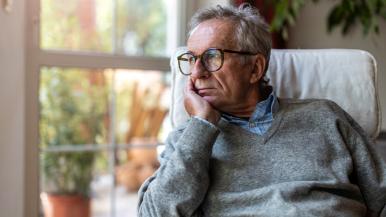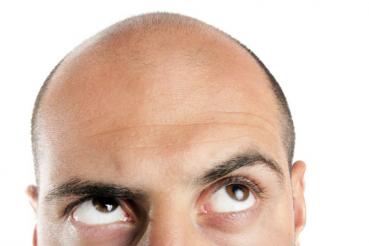While men are less likely to develop depression, they are also less likely to recognize the condition and seek help for it.
"Generally speaking, men tend to be less open about their health problems, including depression" says Michael Hanak, MD, a family medicine physician at RUSH. "But if you avoid the problem and don't seek treatment, it tends to get worse."
Getting help is especially important for older men, who have a higher risk of depression than their younger counterparts.
"You may feel overwhelmed with medical expenses, or that you don't want to be a burden to others," Hanak says. "Don't let those things silence you."
Recognizing the signs
Before you can talk about depression, though, you have to recognize the problem.
People with depression experience fatigue, loss of interest in everyday activities, changes in appetite or weight, and difficulty remembering details or concentrating.
But men are particularly likely to have the following symptoms as well:
- Difficulty sleeping
- Sexual performance problems
- Increased irritability and aggressiveness
Men are also more likely to self-medicate with drugs or alcohol. "If you notice someone is drinking more than usual and has become more withdrawn, that's often a sign of depression," Hanak says
Getting help
If you or a loved one has any of the symptoms above, talk to a doctor. Primary care doctors and geriatricians can do tests to rule out other conditions, such as thyroid disorders, that often cause depression-like symptoms.
They can also screen you for depression and, if necessary, refer you to a therapist or a psychiatrist for further evaluation and treatment.
If you notice someone is drinking more than usual and has become more withdrawn, that's often a sign of depression.
Getting — and staying — better
Depending on your preferences and the severity of your depression, you may need lifestyle changes, therapy, medications or a combination of these things.
Hanak also recommends staying socially active — which can help prevent depression in the first place.
"Make a plan — especially if you're not working: How are you going to spend your time? Who are the people you're going to spend time with? That's the best way to ward off depression and maximize your well-being later in life."




